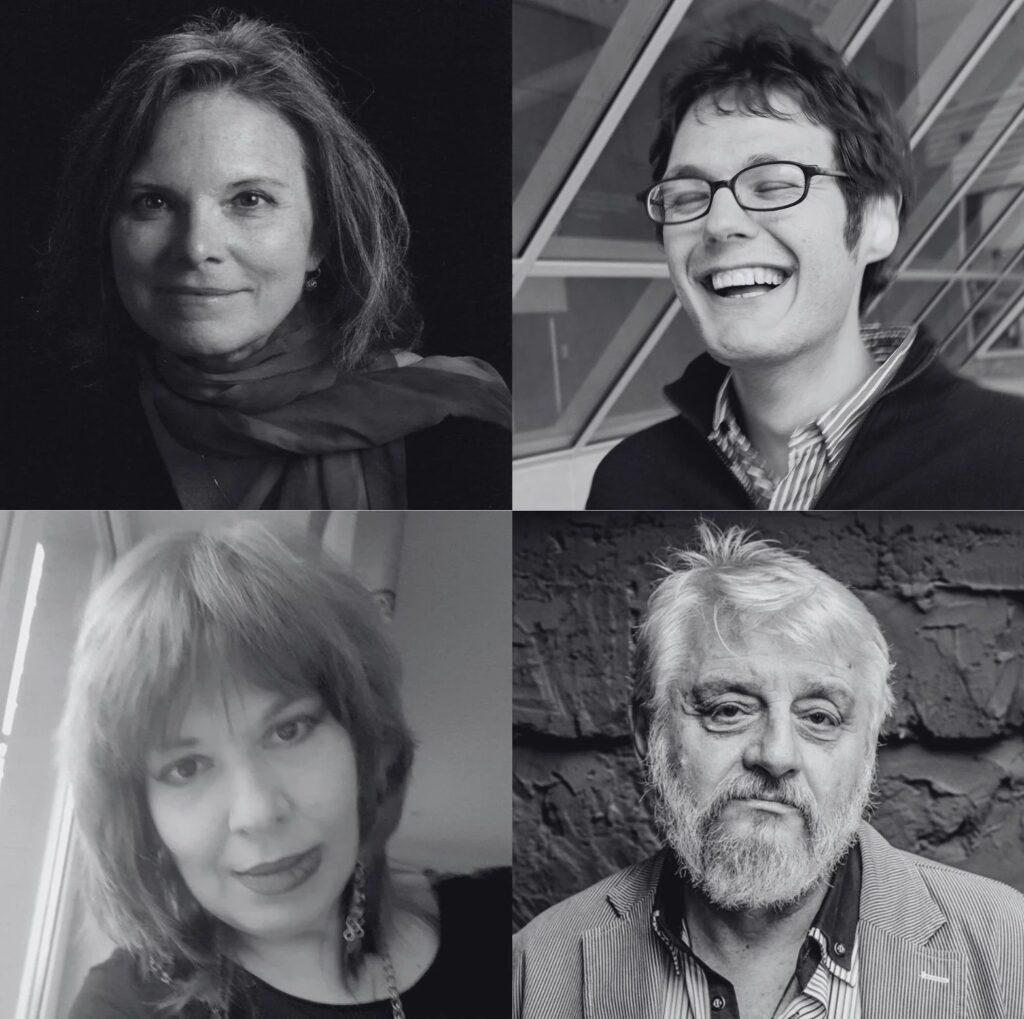The Lannan Center, Georgetown’s dynamic literary and cultural institute, hosted a reading about poetry from Ukraine from the poetry anthology “In the Hour of War: Poetry from Ukraine.”
Askold Melnyczuk, the founder of Arrowsmith Press, the company that published the anthology, moderated the Nov. 7 reading in Copley Formal Lounge, the fourth and final event of the semester, between Carolyn Forché, a professor of English and the Director of the Lannan Center for Poetics and Social Practice and a poet with five published books; Ilya Kaminsky, born in Ukraine, wrote “Deaf Republic” and “Dancing In Odessa.”; Lyudmyla Khersonska; a poet and translator from Ukraine who has four published poetry collections written in Russian; and Boris Khersonsky, a poet and translator from Ukraine who has four published poetry collections written in Russian. Khersonsky is the author of 17 collections of essays and poems and is widely regarded as Ukraine’s premier Russian-speaking poet. Forché and Kaminsky began crafting the anthology collection, which features 27 poets and 28 translators, days after Russia’s invasion of Ukraine in February 2022 and finished the project in early fall of 2022.
While not all poems were written after the war began, the anthology aims to collect personal accounts of Ukraine’s people and culture for a global audience. Each poet read the poem aloud, first in English and then in Ukrainian.

Forché, who has been designated as a “poet of witness” by The Lannan Center because she writes explicitly about what she sees globally, read her poem “If there is ink,” a work about the destruction Forché sees in the war in Ukraine.
“If there is ink for this hour, if there is something to say to write that would send the tanks, the convoys and transports into reverse on the roads they have rutted,” Forché read at the event. “If there is ink, if there is something to write that would raise the cities from the ruins, the apartments, blocks, hospitals, schools, that would put the cities back as they were. I would give everything to fill my pen with it.”
Forché said she wrote the poem after realizing that she could not be silent about the war in Ukraine and sees the poem as a message to the global community regarding the beginning of the war.
“When I knew that I was going to do this, I knew that I would need to say something,” Forché said at the event. “I didn’t want to do it off the top of my head, so I wrote something. For a while, I just called this a message, and then it got published as a poem.”
Forché said the process of creating the anthology was global, featuring poets around the world who met online days after the full-scale invasion of Ukraine in February 2022.
“These Zooms were very special because there were American poets and Ukrainian poets meeting between Ukraine and the U.S.,” Forché said.“We didn’t know whether the connections would hold, we didn’t know whether we would be able to keep each other online on Zoom.”
“It was like seeing an apartment house with every poet in a window. And some of the poets were in cities already under fire, or some of the poets were not yet under fire, but we wanted to be together, and we wanted to be close to each other,” Forché added.
Forché said she and Kaminsky created the anthology to be a story of the ongoing war and human experiences in Ukraine.
“The anthology is arranged, not by alphabetical order of poets or birth year, it’s arranged as any book of poems written by one single poet to tell the story of Ukraine in the moment,” Forché said.
Melnyczuk said upon being asked to speak about the war in Ukraine to begin the discussion, he turned to statistics and data out of impulse. He said there are over 500,000 casualties, one million displaced former citizens, 19,000 children missing and 600 burned libraries.
However, Melnyczuk said he focused on the human experiences of the war with the poem “Advice to a Prophet” by Richard Wilbur and citing William Carlos Williams, an American poet who focused on imagination as a literary tool.
Melnyczuk said the poem helped move the goal of the anthology to focusing on individual experiences.
“The language communicates the feel of what has happened and what’s been lost,” Melnyczuk said at the event. “That translates the abstract into the palpable.”
Kaminsky shared his poem “Author’s Prayer,” originally written in 2004 as part of his poetry book “Dancing in Odessa,” to share the withstanding struggle Ukrainians have faced over time combined with the endurance of culture and life.
“If I speak for the dead, I must leave this animal of my body, I must write the same poem over and over, for an empty page is the white flag of their surrender,” Kaminsky read at the event. “I will praise your madness, and in a language not mine, speak of music that wakes us, music in which we move. For whatever I say is a kind of petition, and the darkest days must I praise.”
Kaminsky also read his poem “We Lived Happily During the War” to speak about the death and struggles Ukraine faces in war contrasted with the global lack of effective protest and attention to crises.
“And when they bombed other people’s houses, we protested but not enough, we opposed them but not enough,” Kaminsky read. “In the sixth month of a disastrous reign in the house of money, in the street of money, in the city of money, in the country of money, our great country of money, we (forgive us) lived happily during the war.”




















